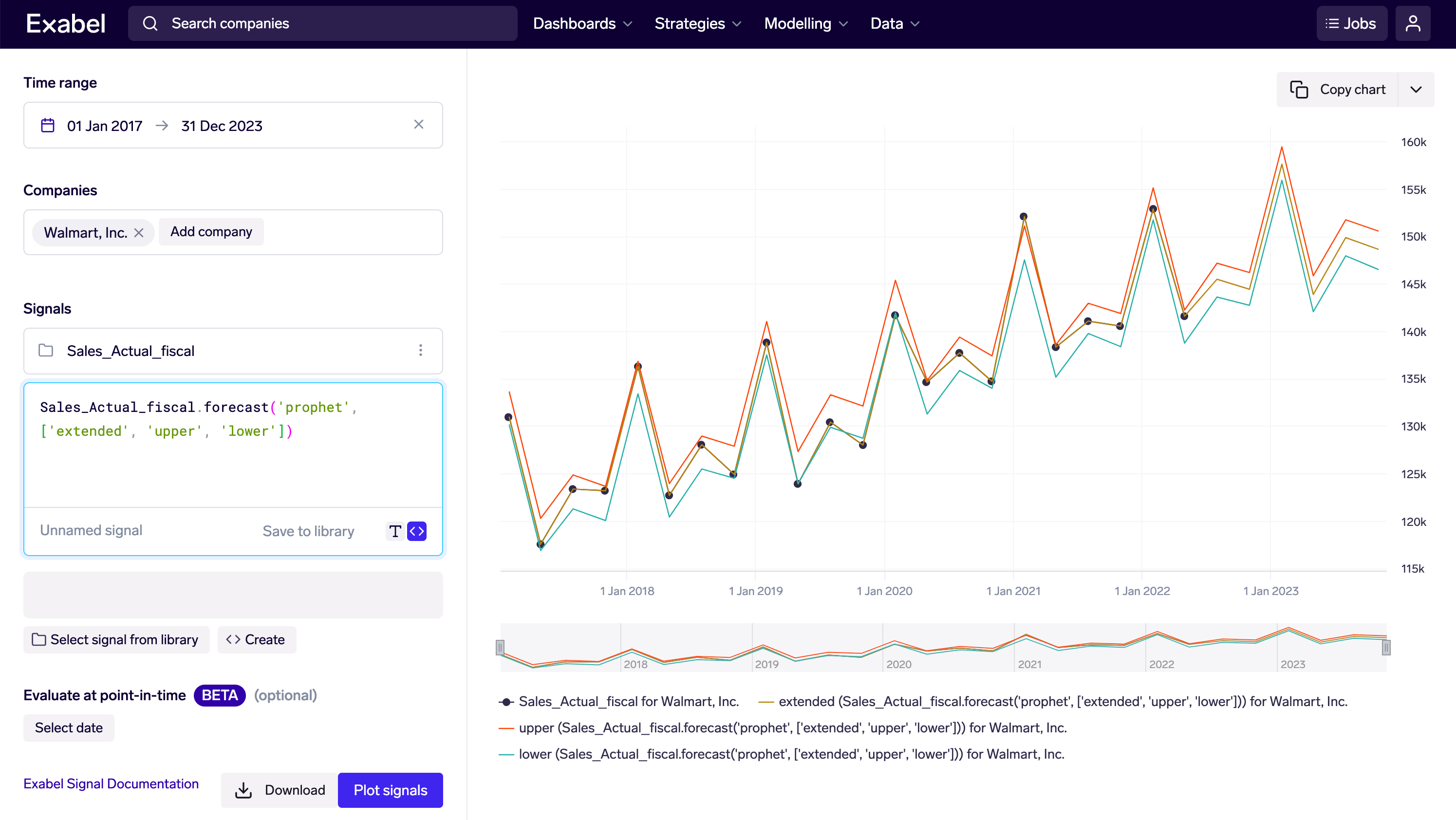Improved univariate forecasting
We have released support for more univariate forecasting models, together with a cleaner, generalized interface to make such forecasts through a new forecast() DSL function.
What is univariate forecasting?Univariate forecasting refers to forecasting, or extrapolating, future values of a time series, based solely on the historical data points and patterns in the time series itself. It does not consider other time series as inputs into the forecast.
Previously, Exabel offered only the Prophet and Unobserved Components models. These were accessed through an inconsistent interface, using the prophet(), unobserved_components() and forecast_extension() functions.
We have now extended univariate forecasting support to 5 open-source models, namely: Holt-Winters, Prophet, Sarima, Theta, and Unobserved Components; and now expose all such models through a consistent and intuitive interface in a <signal>.forecast() DSL expression that works on any existing signal:

A univariate forecast of Walmart reported sales using the Prophet model, with lower & upper bound estimates.
For all 5 models, Exabel uses the open-source implementations in the statsmodels and Prophet libraries. Depending on the chosen model, the forecast() function applies sensible default parameters chosen by Exabel, although all model parameters, including model-specific parameters, may be specified in the forecast() function.
For detailed information on each model, available parameters, and example expressions, see the Forecasting page in the DSL reference.